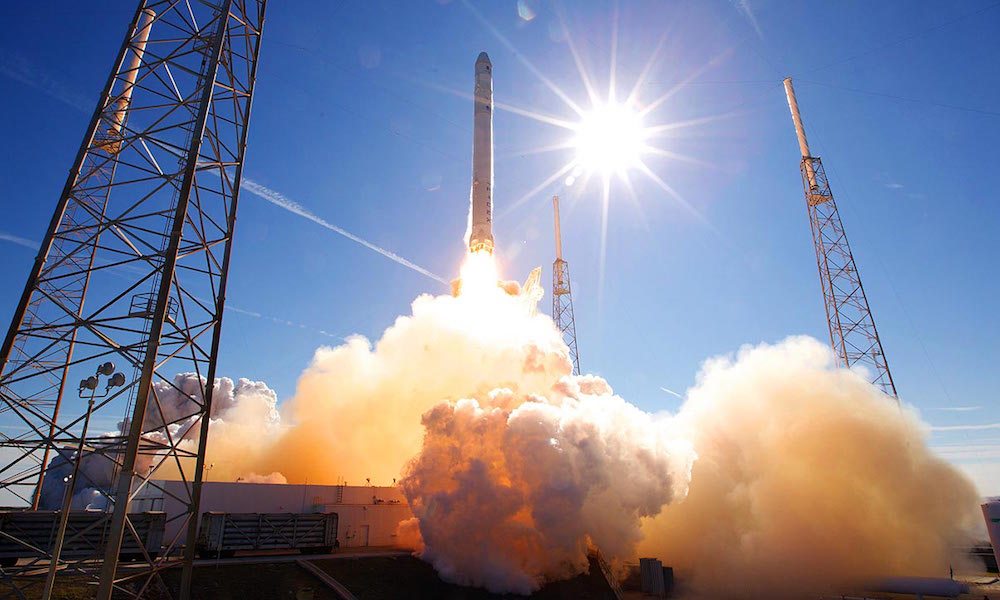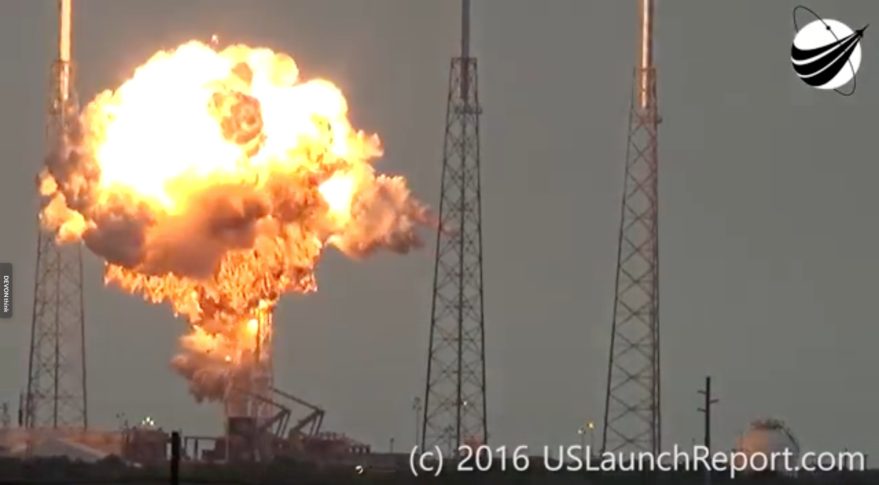SpaceX’s Falcon 9 Rocket Bursts Into Flames While Carrying $200MM Facebook Satellite

Toggle Dark Mode
On Sept. 1, one of SpaceX’s rockets went up in flames while sitting on its launchpad. The Falcon 9 rocket exploded Thursday morning while it was being fueled on a NASA launchpad in Cape Canaveral, destroying both it and the Facebook satellite it was carrying, according to CNN.
No injuries were reported, and the space exploration company called the event an “anomaly.”
The Hawthorne-based company said that it is launching an investigation into the cause of the explosion, and has invited NASA and the U.S. Air Force to aid in the analysis. The Facebook satellite it was carrying cost around $200 million, according to the LA Times. “I’m really disappointed to hear that SpaceX’s launch failure destroyed our satellite,” Facebook CEO Mark Zuckerberg wrote in a post, adding that the satellite was meant to provide internet access to parts of Africa, the Middle East, and Europe.
The blast occurred at SpaceX’s Launch Complex 40, which is an Air Force facility leased to the company. But even before Thursday’s launch failure, the company was working on getting another launch pad — leased to them by NASA — up and running.
NASA’s neighboring facilities weren’t damaged by Thursday’s blast, and none of the other planned NASA operations at the site were affected, CNN reported.
The damage to Launch Complex 40 is still being assessed, and they might be severe enough to force the company to find another launching station. Elon Musk, CEO of SpaceX, tweeted yesterday that the inferno was not an explosion, but “a really fast fire.”
He added that SpaceX’s Dragon Escape Capsule, which is being developed as a safety feature for future crewed missions, would have survived the flames. The FAA, for their part, requires that SpaceX’s launches be suspended in the event of such a disaster, pending further investigation. For example, in June of last year, a SpaceX Falcon 9 exploded after launch — and it required the company to pause operations for six months while defective parts were being replaced, according to Reuters. But officials have said that this investigation will likely be much shorter.
SpaceX’s next flight is already scheduled for mid-September in California — and should go as planned if they are given the go-ahead by the FAA.
Its next Florida flight is slated for December, and depending on the extent of the damage to Launch Complex 40, SpaceX might have to scramble to get its other Florida launching facility ready in time, Reuters reported.







